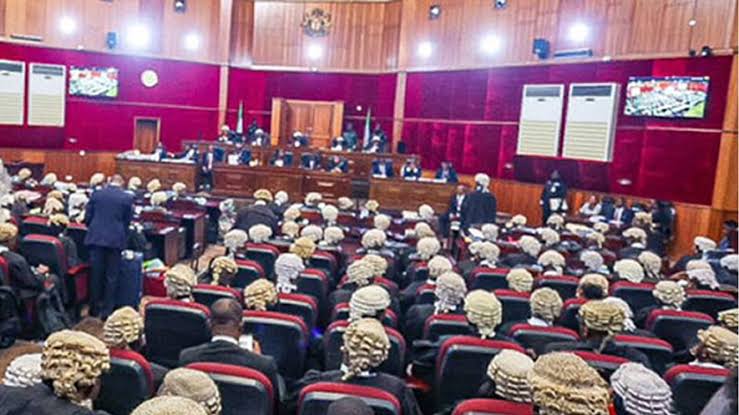By Abigail Philip David
Legal experts in Nigeria have attributed corruption within the judiciary to broader systemic failures in the country’s political and governance structures.
Speaking at a recent gathering in Abuja, Chief Justice of Nigeria (CJN) Justice Kudirat Kekere-Ekun expressed concern over persistent allegations of corruption, delays, and bias in the judicial system. She acknowledged ongoing reform efforts but admitted that challenges remain, warning that these issues threaten public trust in the judiciary.
“Despite our collective efforts, allegations of corruption, inefficiency, and judicial delays persist,” she said. “These concerns weaken the judiciary’s authority and erode public confidence, creating a dangerous disconnect between the courts and society.”
Justice Kekere-Ekun emphasized the need for decisive action to restore faith in the judiciary, stressing that integrity, professionalism, and transparency are crucial in rebuilding trust.
The Nigerian Bar Association (NBA) President, Afam Osigwe, SAN, urged lawyers to uphold ethical standards, warning that any breach of professional conduct damages the legal profession’s credibility.
“We must instill confidence in the public by ensuring that those who violate professional ethics face consequences,” he stated. “Only by holding ourselves accountable can we rebuild trust in the system.”
Similarly, Eletu O., convener of the Public Accountability and Justice Initiative for Good Governance, noted that public confidence in the judiciary has waned due to its entanglement in political matters.
“It will take time for the judiciary to regain public trust,” he said. “Many Nigerians believe the courage to dispense justice impartially is diminishing.”
Senior Advocate of Nigeria Abdul Balogun acknowledged the existence of corrupt elements within the judiciary but maintained that legal safeguards are in place to address them.
“There are bad eggs in every profession, including the judiciary,” he said. “However, the law provides mechanisms to deal with them, ensuring they do not succeed in undermining the system.”
Constitutional lawyer Bashir Akande commended judicial leaders for preventing a total collapse of the system, arguing that every society faces challenges, but strong leadership ensures stability.
“The ability to address challenges without letting them spiral out of control defines good leadership,” he noted. “We must continue working within the law to strengthen our judiciary because if it fails, we all suffer the consequences.”
With mounting pressure for reforms, legal professionals and civil society advocates are calling for a holistic overhaul to restore the judiciary’s credibility and ensure justice prevails.




